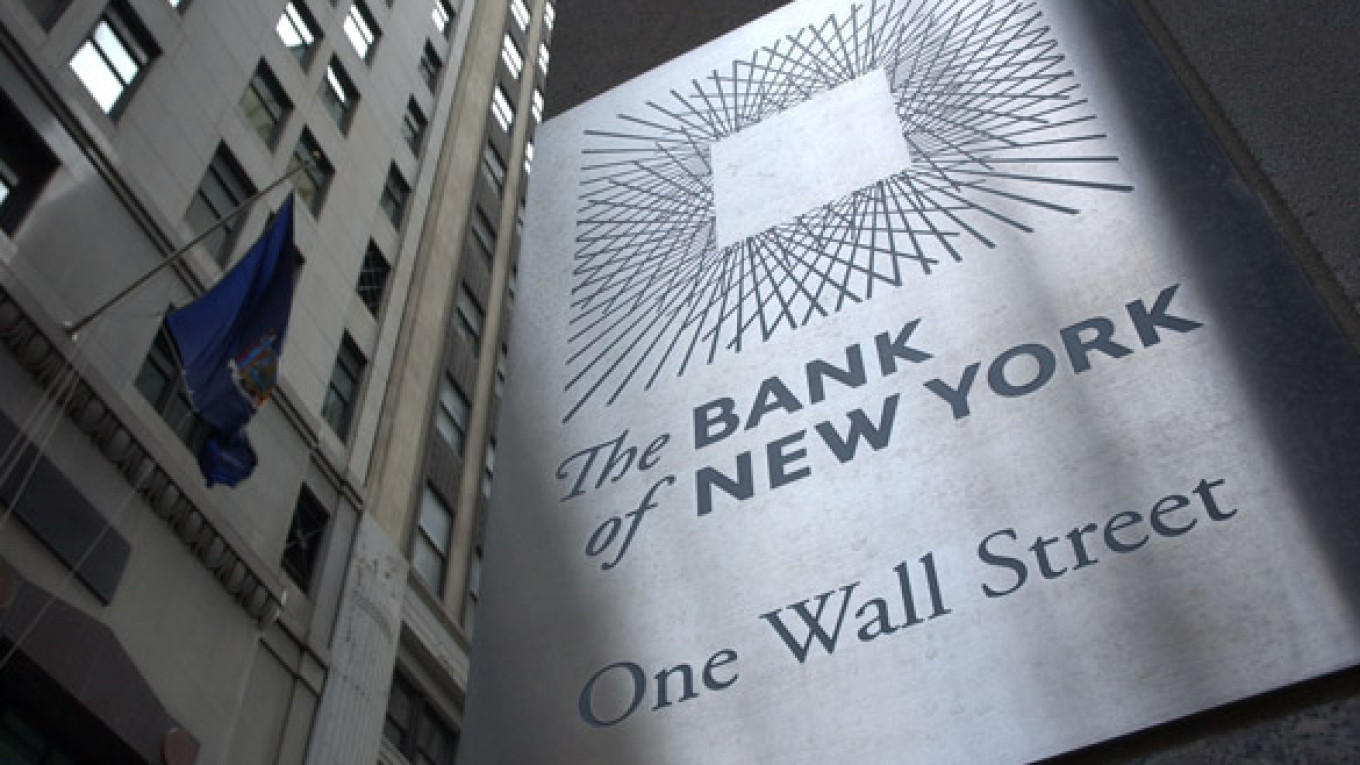Bank of New York Mellon will pay at least $14 million in court costs to settle a multibillion-dollar lawsuit brought by the Federal Customs Service, Finance Minister Alexei Kudrin said Wednesday.
As the court battle draws to a close, Russia will also walk away with a loan from the bank, which Kudrin said would be an “act of goodwill” unrelated to the settlement talks. BNY Mellon has huge business ties with the country.
The Federal Customs Service has been seeking $22.5 billion from the lender since May 2007, accusing it of helping illegally transfer a total of $7.5 billion out of Russia in the 1990s. The customs service, which says it was deprived of fees because of the transfers, sued the bank for triple that amount under the U.S. Racketeer Influenced and Corrupt Organizations Act, or RICO.
The case became mired in procedural delays, however, and the customs service offered an undisclosed out-of-court settlement in February.
“Guilt hasn’t been proved. A settlement will be signed,” Kudrin told the State Duma, answering questions as part of a government report on anti-crisis measures, RIA-Novosti reported. “Data and materials … are very insufficient to win such a case in court.”
The Russian lawsuit was based on the bank’s settlement with the U.S. government in 2005. The bank said at the time that it failed to report suspicious wire transfers and paid $14 million as part of the settlement. BNY Mellon never was charged with any crime and did not admit to any criminal guilt as part of the settlement.
Kudrin said the arrangement with the Federal Customs Service would involve a payment of at least the same size. BNY Mellon, which has described the lawsuit as being without merit, has said it would not pay more than that.
The bank loan is not linked to the settlement agreement, Kudrin stressed, but is an “act of goodwill confirming the bank’s desire to work with Russia and show its attitude in a difficult time.”
The loan will amount to $4 billion and come in installments of $400,000 every six months, Kommersant reported Monday. The money will go to Russian banks chosen by the government at an interest rate 2.5 percentage points above the London interbank offered rate, the report said.
Ivan Marisin, a Clifford Chance lawyer representing the bank, would not confirm or deny the report when contacted Wednesday. He said it was possible that the two sides would conclude the settlement before the next hearing, on Oct. 22.
Maxim Smal, a lawyer representing the Federal Customs Service, said he was instructed to decline comment.
BNY Mellon, which has many U.S. and international clients that are exporters to Russia, would want to end the dispute to remove concerns about its position in Russia, said Mark Rubinstein, a financial markets analyst at Metropol.
The bank, the world’s biggest custodian of depositary receipts, including from Russian issuers, would also want to mend relations with the government to avoid losing state-controlled clients such as Gazprom, he said.
“If frictions were to continue, the government could recommend the companies choose other depositary banks,” he said.
The interest rate offered by BNY Mellon is very attractive, said Dmitry Vinogradov, a financial analyst at UBS in Moscow.
It is lower than the LIBOR plus 4 percent that LUKoil secured on a syndicated $1.2 billion loan from Western banks last month. The country’s second-largest oil producer pledged its exports revenue as collateral.
The facility looks sizeable when compared with the $5 billion that the government has set aside to recapitalize banks if needed this year, Vinogradov said. It looks less impressive, however, when compared with the $40 billion that the government spent on bank recapitalization at the end of last year, he said.
In any event, the loan would give the state added flexibility if nonperforming loans start to weigh on the sector in the coming months. The government, seeking to close a spiraling deficit, has been loath to turn to expensive international debt markets to finance its anti-crisis measures.
On Tuesday, Kudrin capped the potential foreign borrowing for 2010, saying in a government budget meeting that the state would issue eurobonds of $18 billion but not seek any other external financing.
A Message from The Moscow Times:
Dear readers,
We are facing unprecedented challenges. Russia's Prosecutor General's Office has designated The Moscow Times as an "undesirable" organization, criminalizing our work and putting our staff at risk of prosecution. This follows our earlier unjust labeling as a "foreign agent."
These actions are direct attempts to silence independent journalism in Russia. The authorities claim our work "discredits the decisions of the Russian leadership." We see things differently: we strive to provide accurate, unbiased reporting on Russia.
We, the journalists of The Moscow Times, refuse to be silenced. But to continue our work, we need your help.
Your support, no matter how small, makes a world of difference. If you can, please support us monthly starting from just $2. It's quick to set up, and every contribution makes a significant impact.
By supporting The Moscow Times, you're defending open, independent journalism in the face of repression. Thank you for standing with us.
Remind me later.


